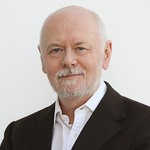Blog
From the Editor's Desk (May 2015)
May is always a hopeful month. With 18 hours of daylight we are all perky—especially the seagulls who swarm around Helsinki harbour. Here at UNU-WIDER the communications team is busy with the new website which will roll out later in the year. The publications team is pushing out new working papers (nearly 50 so far this year) as well as special issues of journal (open access!) and books. The support staff is working very hard to keep the institute humming.
Turning to this month’s Angle and the piece by Roger Williamson, our eyes focus on that perennial question: what is research impact? How do we recognize it? How do we get more? Like all research institutes, UNU-WIDER is in the business of trying to get our work to have as much impact as possible. Our 2014-18 work programme defines three key audiences for UNU-WIDER: the research community, especially in the developing world; national policy makers in developing countries; and their international partners, including the UN system itself.
Aid gets a bad rap these days. Some of the criticism is robust; much of it is inaccurate. The NGOs, aid agencies, and the UN are now helping Guinea, Liberia, and Sierra Leone back on their feet after Ebola, after a massive emergency response. I wonder whether aid’s critics have thought about what would have happened, without the present aid system? Probably not. In GUESTAngle we welcome a long-time observer of the aid architecture, Myles Wickstead, to reflect on the future of aid and development. Myles has considerable experience in Africa, and has a new book out soon via Oxford University Press.
ARCHIVEAngle this month continues on the topic of aid. In a 1999 article Rolph van der Hoeven discussed the importance of a global governance system that is able to deal effectively with development in general, global economic shocks, and natural disasters. Aid cannot be seen in isolation from the issue of global governance: the efforts of poor countries to develop, and therefore the effectiveness of aid to them, can often be undermined by global events over which they have little control.
May’s RESEARCHAngle brings you news of recent UNU-WIDER work on poverty in Africa. The first piece is on Burkina Faso, which has achieved growth but little poverty reduction, according to research by Michael Grimm, Claude Wetta and Aude Nikiema. The second is on the impact of food prices on children’s nutritional status in Mozambique, by Channing Arndt, M. Azhar Hussain and Lars Peter Østerdal. There is great deal more on African poverty on our website.
VIDEOAngle this month welcomes Per Pinstrup-Andersen of Cornell University, and a former IFPRI director. We interviewed Per recently on this thoughts on the political economy of food price policy, following the recently completed UNU-WIDER project with Cornell. Per’s fascinating book on food price policy is now out, and you can get more details here.
Helsinki’s seagulls can hardly be said to ‘tweet’ gently: their raucous cries fill the air at the moment. But UNU-WIDER does tweet, and you can follow us at @UNUWIDER. Other colleagues tweeting at the moment include Rachel Gisselquist @RGisselquist, Saurabh Singhal @singhalecon, and of course UNU-WIDER’s director Finn Tarp via @FinnsAngle. We return next month with our double June-July summer issue of Angle, and more news and views.
 Join the network
Join the network
